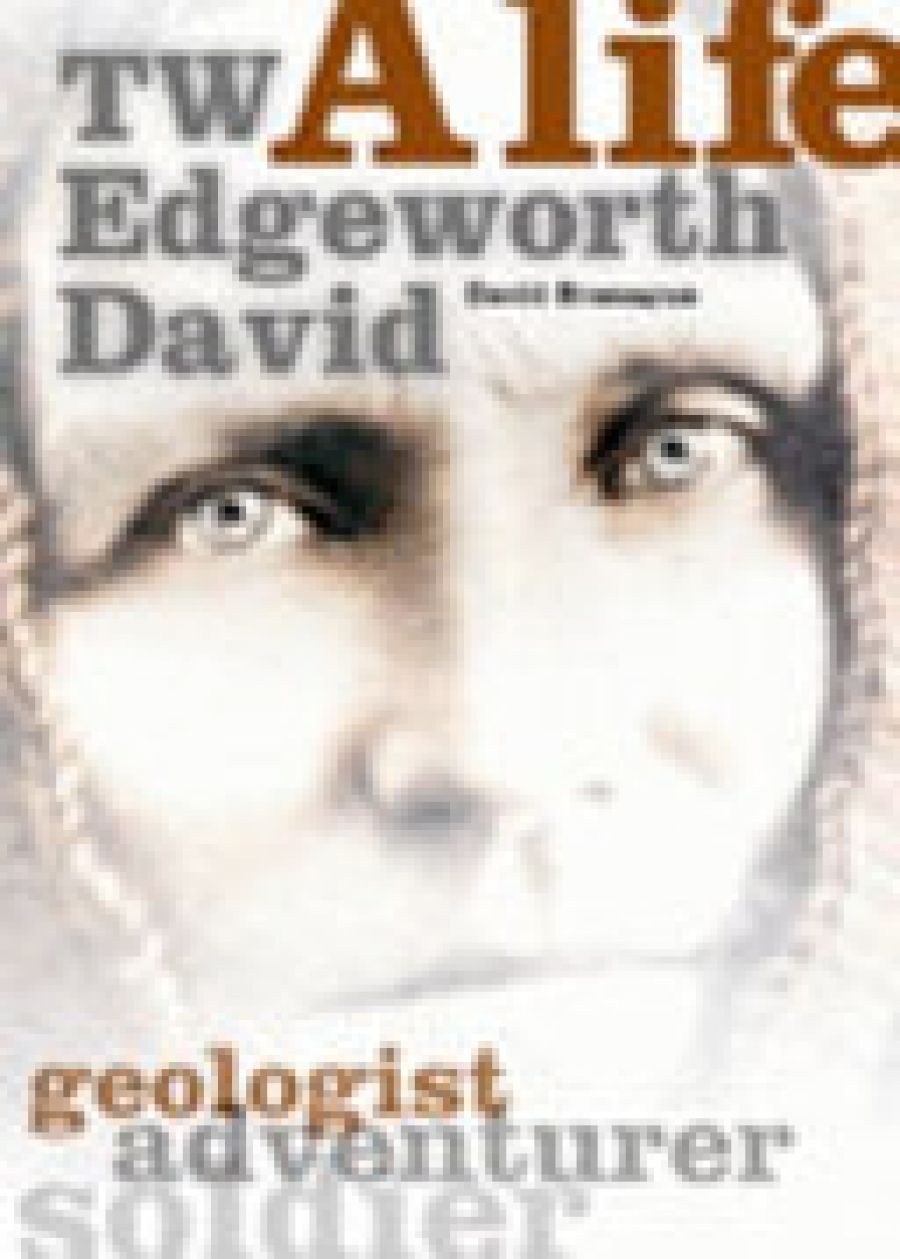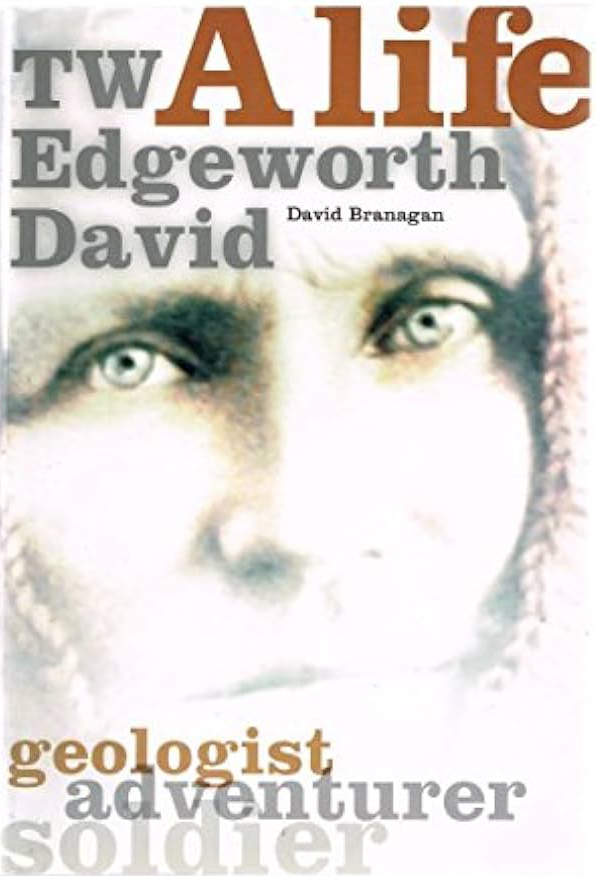
- Free Article: No
- Contents Category: Biography
- Review Article: Yes
- Article Title: Boss man
- Online Only: No
- Custom Highlight Text:
With the publication of Eminent Victorians in 1918, Lytton Strachey famously created a new mode of biographical writing – spare, ironic, satiric, detached. In his preface to that slim cathartic volume of portraits of four famous Victorian personalities, Strachey extolled the biographer’s virtue of what he called ‘a becoming brevity’. That preface has been called a ‘manifesto of modern biography’. In his breaking of new ground, Strachey turned his back on the sombre and dutiful ‘lives’ that had become the accepted mode of biographical homage in Victorian England.
- Book 1 Title: T.W. Edgeworth David
- Book 1 Subtitle: A life
- Book 1 Biblio: NLA, $39.95 pb, 648 pp, 0642107912
- Book 1 Cover Small (400 x 600):

- Book 1 Cover (800 x 1200):

In his detailed explication of David’s abundant virtues, Branagan confesses that he had in fact created a much longer manuscript – ‘enormous’ and ‘untidy’. He acknowledges, though, the substantial contribution of the National Library’s Paul Cliff in the final shaping of the book. This suggests some considerable cutting. But running against the more incisive style of modern biography initiated by Strachey, a vast, sprawling book remains. It is, without apology, an essay in veneration.
Even so, while Branagan’s scholarship and attention to detail is formidable, he writes with a pleasing ease and lucidity that is helpful in highlighting the significance of David’s endeavours, particularly as a geologist both in the field and as a teacher at the University of Sydney. In his time, David stood as one of the revered figures of Australian public life. In his quiet and determined way, he was a mover and shaker respected and deferred to by state and national governments in Australia. While he seemed always to lack personal vanity, David was never shy in using his prestige and influence to argue the cause of science and the need for a coordinated and publicly funded approach to research.
David’s career was as stellar as it was multifaceted. It included his heroic participation as a member of Shackleton’s Nimrod expedition to the Antarctic (1907–09) in which he triumphed as the leader of the party that conquered Mount Erebus. In his late fifties, David promoted the case for a corps of geologists and miners to serve at the front-line during World War I. He enlisted in the Australian Imperial Force and went on to serve with distinction on the Western Front. Three times mentioned in despatches, he was awarded the Distinguished Service Order in 1918. In civilian life, too, honours were heaped upon him. Not the least of these was his admission as a Fellow of the Royal Society in 1890 for his work in proving a theory originally advanced by Charles Darwin, concerning the ways in which coral atolls were formed. It was this work that, relatively early in David’s career, established his international reputation.
In his time, David was one of the most famous Australians. When he died in 1934, he was accorded the distinction of a state funeral. Thousands lined the streets of Sydney as the cortège passed on its way from the Anglican Cathedral to the Northern Suburbs Crematorium. Branagan’s interest is to probe the question of just how it is that David’s fame – unusual for ‘a scientist, and a geologist at that’ – came to be eclipsed and forgotten. Had his subject been a sportsman, Branagan suggests, there might have been no national forgetting. By constructing what is a monument, he seeks to persuade the present generation of Australians and those to come of the ‘greatness’ of David’s life.
But, except for the very few, fame is ephemeral. One of David’s virtues was his modesty, his ordinary decency, and his lack of pretension. This was always admirably expressed in his dealings with his students – in his accessibility, in his generosity, in his simple courtesy and in the encouragement, he gave to the many who went on to build singular careers and reputations of their own. For these and other qualities, he was greatly loved and admired. One imagines that David himself might not have cared too much about posterity. Still, Branagan’s book is a tribute and a reminder that the texture and achievement of a nation is to be judged not only by the singularity of performance on the sporting field, in the swimming pool or on the racetrack.


Comments powered by CComment